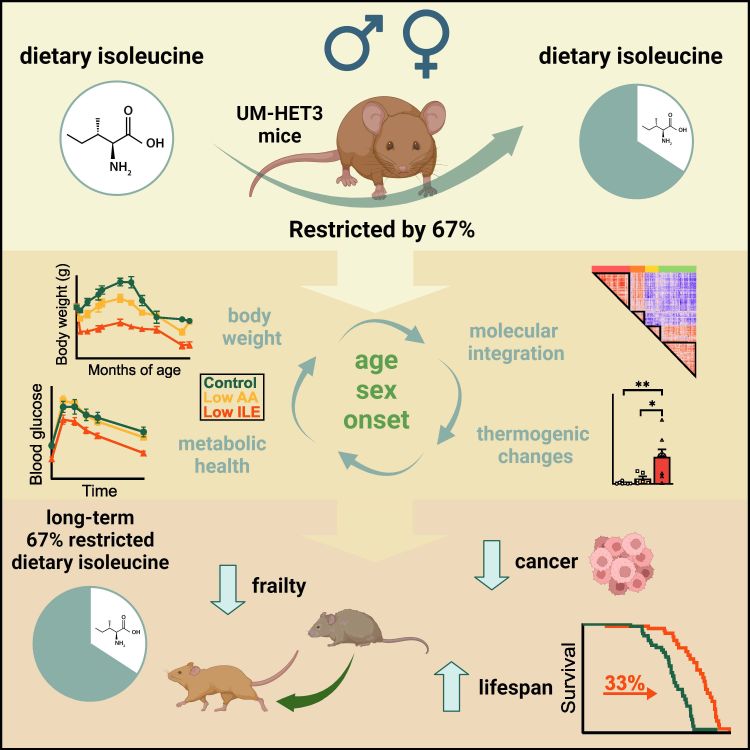Molecular Physiology of Aging
Dudley Lamming, PhD, is a federally funded investigator whose research aims to harness nutrient-responsive signaling pathways to promote health and longevity. Understanding and manipulating these pathways through dietary, pharmaceutical or genetic interventions may provide insight into promoting healthy aging as well as the treatment of age-related diseases, including Alzheimer’s disease, cancer, diabetes, and sarcopenia.

Research Overview
Dr. Lamming’s lab investigates how diet and nutrient-sensing pathways regulate metabolism, aging, and age-related disease. His group previously demonstrated that dietary protein and, in particular, dietary branched-chain amino acids (BCAAs) are key drivers of metabolic health, influencing body composition, blood sugar control, and longevity in mice. His team currently studies how diet influences lifespan and the mechanisms that mediate these beneficial effects, with the goal of identifying new ways to promote healthy aging and to treat or prevent diseases of aging, including diabetes and Alzheimer’s disease.
A central theme of the lab remains the study of the mechanistic Target of Rapamycin (mTOR), a nutrient- and hormone-responsive kinase that coordinates growth and metabolic homeostasis and that, when inhibited, extends lifespan in diverse species. The Lamming lab examines how mTOR functions in specific organs and cell types, and through mouse and human studies investigates how and if mTOR inhibitors like rapamycin can safely promote healthy aging.

